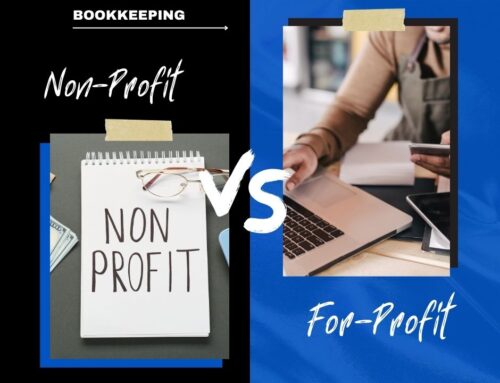Small business owners, especially those just starting out, are often entirely focused on expanding their client base, growing their business, increasing revenue and ensuring the goods and/or services being provided are top-notch to retain existing customers. While it’s critical to your business’s success to pay attention to all these things, you can’t afford to let your bookkeeping fall by the wayside either. Without accurate bookkeeping, your business can suffer. Most small business owners aren’t familiar with accounting best practices, but they’re important to learn to help ensure accuracy in your finances.
Determine Your Accounting Method
Before you can begin keeping your books, you must first decide how they’re going to be kept. There are two methods to choose from, cash and accrual. Cash accounting involves recording transactions after payments are made or received. It’s the more commonly used method because it’s less complicated. Accrual accounting involves recording transactions as soon as they occur, even if no money has changed hands.
Generally accepted accounting principles (GAAP) require accrual accounting, but the Internal Revenue Service allows qualifying small businesses earning less than $25 million in annual revenue to choose whichever method they prefer. Once your company chooses an accounting method, you must stick with it per IRS rules. However, if you really need to change your accounting method, you can seek permission from the IRS to do so once.
Track All Your Expenses
Start-ups might be able to track expenses and accounts payable using a simple spreadsheet, but as your business grows, this won’t be feasible. You must keep a thorough record of all your business expenses, which requires recording all receipts at least weekly or possibly daily if you regularly get a lot of receipts. You need a more accurate accounting method to keep track of growing expenses. Choose a core accounting software system to automate and help perform daily and weekly bookkeeping tasks to save time. QuickBooks is a popular and reliable choice for small businesses, and the software scales with your business to meet your future accounting needs.
Monitor Accounts Payable and Accounts Receivable
Part of tracking expenses includes monitoring your business’s accounts payable and accounts receivable. Accounts payable include amounts you owe to creditors and must be paid accurately and on time to ensure continued good relations, avoid potential late fees and take advantage of any discounts available for paying early. Accounts receivable are those amounts due your business for goods supplied or services rendered to consumers that haven’t been paid for yet. Collecting outstanding debts quickly through efficient invoice management prevents past-due accounts from piling up and keeps money in the bank. Monitoring AP/AR tops the list of best bookkeeping practices because it’s a critical aspect of your business’s financial health.
Reconcile Bank Statements Regularly
Staying on top of your bank statements is vital to catch any errors as quickly as possible. You should look at your banking transactions daily, reconcile your statements promptly upon receipt and resolve any issues you find right away. When you reconcile your bank statement, the actual funds your company has on hand should match what you’ve recorded in your books. If something doesn’t match, you must discover which is incorrect. There could be a bank error that needs correcting, or it may be an indication of fraud within your company that you must address immediately. Bank reconciliation also helps you track your cash flow and keep tabs on accounts receivable.
Prevent Fraud With Established Internal Controls
Fraud is an unfortunate situation that can happen to any business. Besides establishing accounting best practices, you must also establish and maintain adequate internal bookkeeping controls to discourage fraud. It’s wise to segregate duties to ensure no one person poses a significant financial risk to your business, which reduces the risk of fraud. You should also establish checks and balances within your accounting process. Good practices to establish include requiring two employees to sign all outgoing checks and having a third employee reconcile the checkbook. All your invoices should go through your accounting department for approval before being sent out. If you don’t have an accounting department, consider outsourcing with a reputable accounting firm.
Keep Personal and Business Funds Separate
To prevent cash flow issues and auditing complications, always keep your personal and business finances separate. This important accounting best practice also further deters fraud and helps you avoid simple errors that are often difficult to find. Establish a policy covering the separation of funds that includes barring employees from buying anything to be used for the business with their money or purchasing anything for personal use with business funds. Even if you’re the business’s only employee, don’t commingle funds. Always ask that business items and personal items be rung up separately at stores, and keep a separate bank account and credit cards for your business.
Evaluate Your Financial Data Monthly
It’s also important for small business owners to take the time each month to evaluate their financial data to determine the company’s overall profitability during that period and evaluate its current financial position. Fully balance your books, checking your accounts payable and accounts receivable and determining whether you have any outstanding invoices to pay or collect on. Key financial reports you must also examine during your monthly evaluation should include your cash flow statement, income statement and balance sheet. By checking your financial data regularly, you can easily determine whether things are progressing as you’d expected or if you should reevaluate your business strategy.
Back Up Your Financial Records
Don’t take the chance of losing all your important documents if a computer suddenly crashes or is taken over by ransomware. Recreating all your vital financial documents exactly as they were before may be impossible and cause major issues at tax time. Either keep a hard copy ledger, print out paper spreadsheets daily or go modern and store all your records in the cloud. Whichever method you choose, it’s crucial that you protect your information.
Partner With Professionals to Ensure Success
Taking care of all these tasks may sound daunting and extremely time-consuming when all you really want is to run your business if hiring a full-time in-house bookkeeper isn’t in your budget yet. Set up your business’s record keeping for success and overcome your bookkeeping challenges by partnering with Navitance to help you establish accounting best practices. We have decades of experience and provide comprehensive outsourced bookkeeping services. You can relax knowing our finance professionals prioritize accuracy in all your financial recordkeeping. Contact us at 978-809-3282 to learn more about our bookkeeping and financial services or request a consultation.





